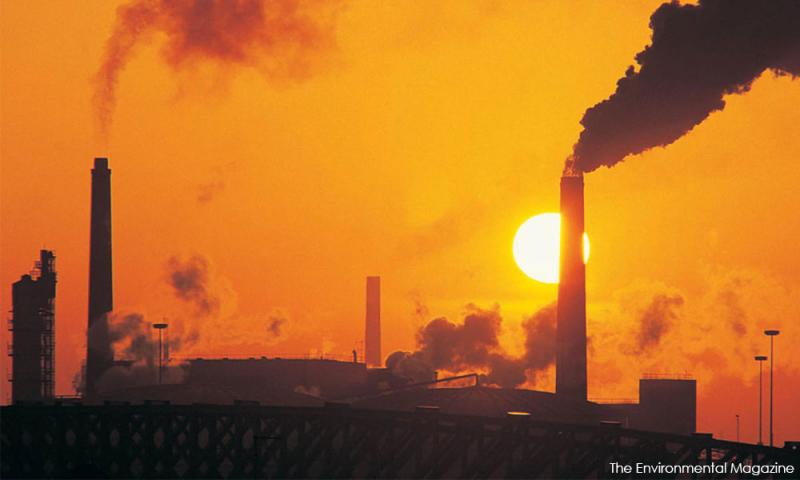LETTER | Malaysia’s Overshoot Day a grim reminder
LETTER | Did you know that if everyone in the world consumed as much as a Malaysian, the Earth’s natural resources for this year would already be used up by today? This calculation, provided by the international research organisation Global Footprint Network, shows that we are exhausting our resources at an alarmingly fast rate. It is only a matter of time until already degraded ecosystems begin to collapse.
With this in mind, the Covid-19 pandemic has forced us to think deeply about the link between environmental and human health. We cannot have a healthy population if our planet is sick. The destruction of wild habitats brings people and wildlife into closer contact and this subsequently increases risks of disease outbreaks.
Time and again, the Covid-19 crisis shows us that systemic changes must happen to address the environmental drivers of pandemics. Planetary health is the achievement of the highest attainable standard of health, wellbeing and equity worldwide through judicious attention to political, economic and social systems.
It emphasises that to advance humanity’s wellbeing, the declining state of planet Earth can no longer be ignored. As the late conservationist John Muir aptly said, “When one tugs at a single thing in nature, one finds it attached to the rest of the world”.
Earth Overshoot Day marks the date when we (all of humanity) have used more from nature than our planet can renew in the entire year. This means that from that date until Dec 31, we are in debt to the planet.
Many countries, including Malaysia, are unsustainably consuming natural resources beyond the Earth’s capacity to replenish them. This is evident from Malaysia’s Overshoot Day, which falls today (May 30), less than halfway through the year.
Human overconsumption, over-pollution, intensive farming practices and overfishing are among the reasons why nature is running out of resources and we are being increasingly exposed to health risks. The resulting deforestation, rapid species extinction, soil erosion and climate change are, quite simply, wreaking slow but certain havoc on the planet.
We must wake up, reduce our damaging ecological footprints and live in such a way that we create positive change for a sustainable future. This starts with us – thinking, feeling and breathing individuals. Yes, we need to work with the larger community and the government to achieve sustainability but change starts with you and me.
So what can we, as individuals, do? Certification labels can guide us in making responsible choices, such as the Roundtable on Sustainable Palm Oil (RSPO) or Malaysian Sustainable Palm Oil (MSPO) logo for palm oil products and the Forest Stewardship Council (FSC) logo for forestry products. Sadly, when we go to the supermarkets, we hardly see any product labels that give us assurance of products produced in a sustainable manner.
So let us demand information where it is not already provided. Producers need to inform consumers what they are offering. For example, we should be a leader in labelling our palm oil products with certified sustainable palm oil logos. But we are not even close.
The WWF Palm Oil Buyers Scorecard last year revealed that most brands around the world have fallen short when it comes to supporting sustainable palm oil. The results were dismal for Malaysia, with only one company scoring on the scorecard and others declining to participate.
For change to be implemented, we need to make noise. As consumers, we should demand more certified sustainable products on our supermarket shelves. We can petition supermarkets to have sustainability labels on their products through social media and build an active community of consumers demanding that the products we consume support environmental protection.
At the end of the day, our demand will spur producers and manufacturers to increase the sustainable production of these commodities. Certification, coupled with strong governance, is key to establishing sustainable palm oil and timber production.
We must also learn to think carefully and choose responsibly before making a purchase and make every effort to reduce the consumption of raw materials. Simple, everyday actions like recycling, reducing food waste, reducing meat consumption, using water prudently, walking to the local store rather than driving, and bringing our own shopping bags can reduce our carbon footprint and prevent us from being ecological bigfoots.
Government conservation initiatives can help reduce human-animal encounters by establishing wildlife corridors to reconnect fragmented forests and enable wildlife to roam freely. Companies should endeavour to produce sustainably, with clear and traceable supply-chains so that any breakdowns in a sustainable supply chain can be identified and rectified immediately. But none of these things will happen without pressure from us, the people.
The science is clear - if we carry on as we are, at some point, society, as we know it, will collapse as ecosystems degrade to the point of no return, resources become increasingly scarce and vulnerability increases. Changing our habits to live sustainably and to generate pressure for producers and those in authority to do the same is vital.
If we take only what we need rather than what society tells us we must have, we will give our younger generations a fighting chance for a better future.
JEMILAH MAHMOOD is special adviser to the prime minister on public health; SOPHIA LIM is executive director/CEO WWF-Malaysia.
The views expressed here are those of the authors/contributors and do not necessarily represent the views of Malaysiakini.
RM12.50 / month
- Unlimited access to award-winning journalism
- Comment and share your opinions on all our articles
- Gift interesting stories to your friends
- Tax deductable
